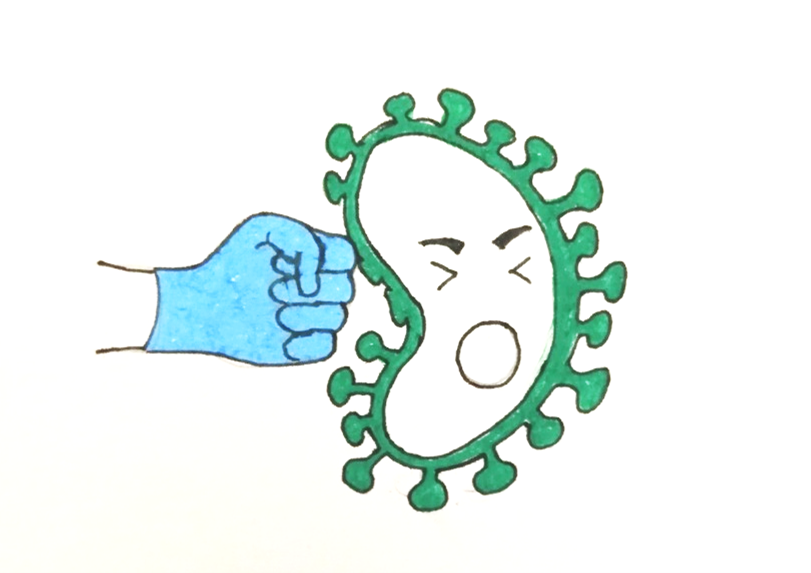By Sarah Dalton, SciTech Sub-Editor
Following a study by Bristol researchers into conspiracies, Sarah offers insight into common COVID-19 vaccine misconceptions
A recent study, lead by researchers at the University of Bristol and Kings College London, has identified that beliefs in COVID-19 conspiracies are directly linked to hesitancy towards vaccines.
Results show that whilst 15 per cent of the general UK public believe that reporters, scientists and government officials are involved in a conspiracy to cover up coronavirus information, this figure almost triples to 42 per cent among those who don’t wish to be vaccinated.
With the announcement of government plans to roll out the vaccine to all UK adults by the end of July, misinformation may be more problematic than ever.
‘Sadly, COVID-19 is real and we need to deal with it as best we can’
Professor Stephan Lewandowsky, Chair of the Cognitive Psychology department at the University of Bristol, stated that: ‘Pandemics or other frightening events that make people feel like they’ve lost control over their lives are a known trigger of conspiracy theories.
‘Some people find it easier to cope with frightening events if they can blame a secret cabal of evil people rather than accepting that bad things can happen for random reasons. A good way of combating conspiracy theories is by informing the public about ways in which they might be misled, which has been shown to protect them against being misinformed.’
To tackle the spiral of digital misinformation, Epigram’s SciTech team are here to separate the fiction from the fact. Here is the science behind five common vaccine conspiracies.
‘We can’t trust COVID-19 vaccines because they were rushed’
Whilst it is true that the COVID-19 vaccines use somewhat new technology, and were developed in rapid time, the process of creating this technology has been going on a lot longer than you may think. The technology at the centre of the Pfizer-BioNTech and Moderna vaccine is a strand of genetic material called messenger RNA or mRNA.
Researchers have in fact been studying and working on mRNA vaccines for more than three decades in order to fight viruses such as the flu and rabies. The companies then put their vaccines through rigorous clinical trials with tens of thousands of volunteers.
‘The vaccine will give me COVID-19’
Many vaccines of the past put a weakened or inactive form of the virus into our bodies, but this is not true of mRNA. When the mRNA in the vaccine enters your cells, it instructs them to create a piece of the SARS-CoV-2 ‘spike’ protein that is present on the coronavirus molecule that causes COVID-19. You can read more about SARS-CoV-2 in Epigram's in-depth article.
These protein pieces do not harm the body but trigger your immune system to produce antibodies which fight the spike proteins off as if they were the coronavirus molecules.
Whilst there is evidence to suggest that the vaccine may cause short term fatigue or headaches, this is simply your immune system responding and is normal in any vaccine.
It's the final episode of our #COVID19 myth busting series with @adamhfinn and we're looking ahead to life post-pandemic 🔮 pic.twitter.com/o25GoSJsY5
— Bristol University 🎓 (@BristolUni) February 20, 2021
‘We don’t know what’s in these vaccines’
In short, this is simply not true. Both Pfizer and Moderna have published the ingredients lists of their vaccines. In addition to mRNA, both vaccines contain lipids that deliver the mRNA into your cells, and several common ingredients that help to maintain the pH of the vaccine. Theories that can be found circulating social media of a hidden microchip have no scientific or factual grounding.
‘These vaccines will alter my DNA’
mRNA is something which is made from the same constituents as DNA, but does not integrate with our DNA as it never enters the nucleus of the cell where our DNA is stored. Instead, the vaccines use mRNA to instruct our cells into making the appropriate immune system response, and then the protein is broken down and discarded by the body.
‘I’ve already had COVID-19, so I don’t need the vaccine’
Now this one is a bit of a grey area, but the standard response is to approach this statement as myth. There is not yet enough scientific research to objectively state how long natural immunity to COVID-19 lasts, but cases of returning COVID-19 are not unheard of.
Professor Adam Finn, expert in immunology and vaccine development from the School of Cellular and Molecular Medicine highlighted that ‘With the emergence of these new variant viruses, this may become more of a problem actually going forward.’
Therefore, current scientific advice states that even if you have had COVID-19, it would still be safest for you to get the vaccine and ensure that you are protected.
Understanding vaccine hesitance could protect people against whooping cough, COVID-19 and health inequality
All you need to know about the COVID-19 vaccines
Despite the attempts of scientific research to put myths to rest, digital platforms such as social media in particular are still prime sites for misinformation. However, as Professor Lewandowsky also noted to Epigram: ‘All conspiracy theories are characterized by certain attributes, such as incoherence, and if you learn to spot them, then you won’t fall for them.
‘Sadly, COVID-19 is real and we need to deal with it as best we can by wearing masks, keeping our distance from others, and getting vaccinated as quickly as possible.’
Featured Image: Epigram / Emily Connor
Do you know how to detect misinformation in the media?









